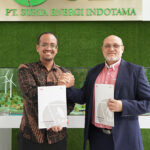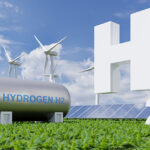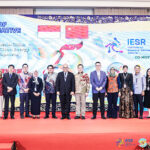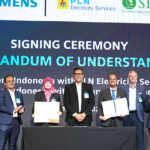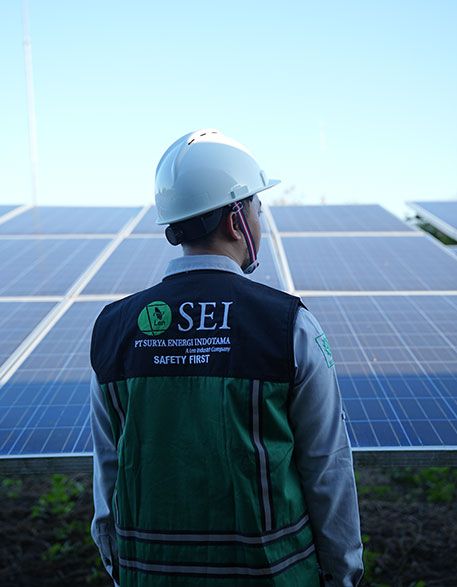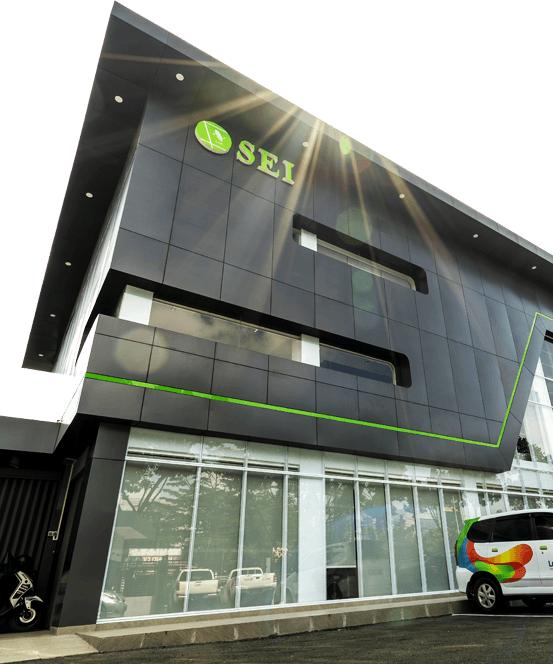Tag: Len
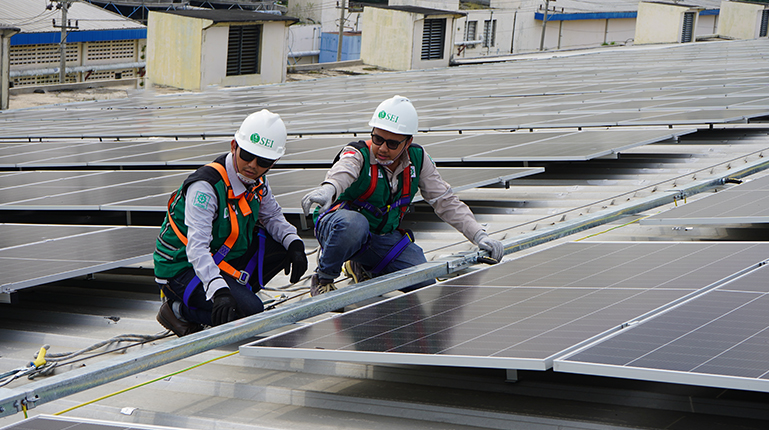
1.7 Million Green Job Opportunities Await in 2030
Indonesia, as an archipelagic country with abundant natural resources, has extraordinary potential in developing the new and renewable energy (EBT) sector. Through the National Energy General Plan (RUEN), the government is targeting a gradual energy transition in order to realize national energy security and reduce dependence on fossil fuels. The year 2030 is an important milestone, where the projection of EBT capacity and contribution is expected to experience a significant spike. In addition to environmental benefits, this transition also has the potential to create millions of green jobs. Based on Greenpeace's calculation method, the following is a projection of the potential for job growth from each EBT sub-sector in Indonesia until 2030:
1. Geothermal

Indonesia is one of the countries with the largest geothermal reserves in the world. Geothermal development not only supports carbon emission reduction, but also opens up jobs in the fields of exploration, power plant construction, and operation and maintenance.
2. Hidropower
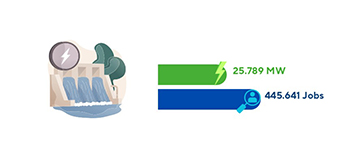
With its river-rich and mountainous topography, Indonesia has great potential in utilizing hydropower. Large-scale and micro-hydro projects can increase electricity access in remote areas while absorbing local labor.
3. Bioenergy

Biomass resources from agriculture, plantations, and organic waste make bioenergy an inclusive, sustainable energy solution. This sector also supports the rural economy through the use of agricultural waste as fuel.
4. Solar Energy

Solar energy is one of the fastest growing renewable energy sources because the technology is increasingly affordable and easy to implement. Installing solar panels on rooftops, industrial buildings, remote areas and public facilities will provide jobs for more people.
5. Wind Energy
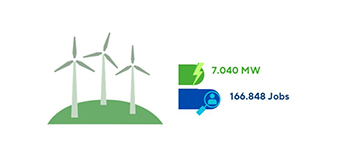
Coastal and highland areas in Indonesia have great potential for wind power development. Wind energy development requires technical expertise and will drive workforce growth in the engineering and maintenance sectors.
6. Renewable Energy

Included in this category are energy from ocean waves, tides, and other innovative technologies. Although still in its early stages, the potential of this sector should not be ignored as part of Indonesia's future energy portfolio.
With a total additional capacity of 69,652 MW from all types of renewable energy, Indonesia has the potential to create around 1,721,435 green jobs by 2030. This figure reflects a great opportunity to combine the economic development and environmental protection agendas simultaneously.
The transition to clean energy is not only an ecological necessity, but also a strategic opportunity to encourage inclusive and sustainable economic growth. The government, private sector, educational institutions, and civil society need to collaborate to ensure workforce readiness through vocational training, increasing human resource capacity, and aligning the education curriculum with the needs of the renewable energy industry.
2030 is not just a target, but the starting point for Indonesia's clean, green, and opportunity-filled future.
Berita Lainnya
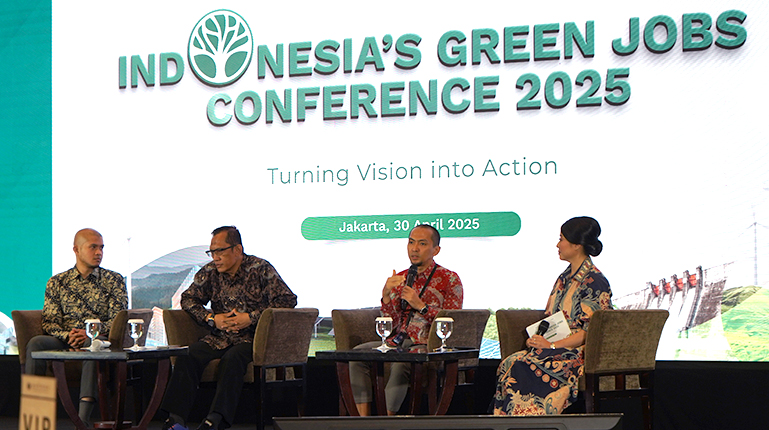
Green Skills in the Spotlight, Ridwan Kurnia Stresses the Importance of HR
Jakarta (30/04/2025) – In order to encourage the development of a green workforce ecosystem in Indonesia, the Ministry of National Development Planning/Bappenas held the Indonesia’s Green Jobs Conference (IGJC) 2025 at the Pullman Hotel, Jakarta. Carrying the main theme “Turning Vision into Action”, this conference also became the official launch event for the Indonesian Green Workforce Development Roadmap.
One of the parallel sessions that attracted attention was the discussion themed “Innovation and Initiatives in Sustainable Practices through Green Skills”. Ridwan Kurnia, Director of Engineering and Operations, was present as a speaker in this session, along with three other speakers from various backgrounds: Ulrike Lehr (Senior Researcher at the Global Resource Unit, GWS Germany), Ahmad Khulaemi (Main Expert Widyaiswara, PPSDM KEBTKE, Ministry of Energy and Mineral Resources), and Aysifa Isvari (Senior Consultant, SRE Woman).
In his presentation, Ridwan emphasized that Indonesia is currently facing major challenges in developing renewable energy, especially solar power, due to the lack of skilled and experienced human resources.
"Actually, we lack skilled and experienced human resources in the Green Industry, especially PLTS. That's why we always actively collaborate with educational institutions in providing input regarding what knowledge is actually needed in the field, so that it is hoped that it will become one of the curricula on campus. If not, this will be a serious problem because the needs of the industry continue to grow, while the supply of skilled workers is not balanced," said Ridwan in front of the audience.
He explained that in his company, around 70% of crucial positions are filled by technicians. Furthermore, Ridwan mapped out the three main categories of strategic positions, namely: Design Engineering, System Engineering and other examples such as Project Planning and Marketing which are the link between the technical and commercial sides, as well as mapping the potential of the project as a whole.
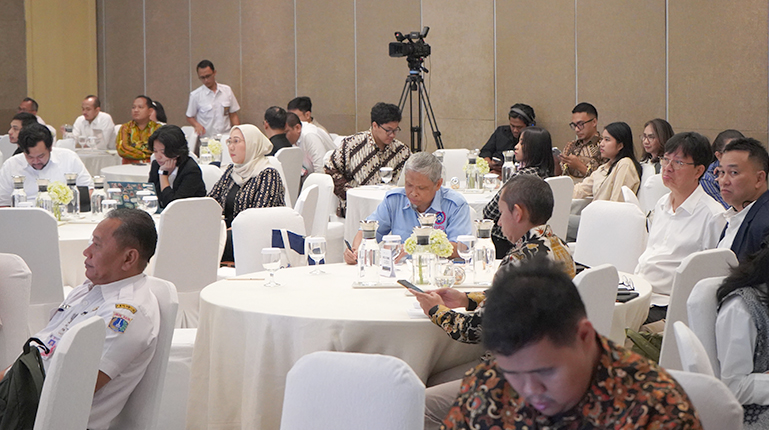
The enthusiasm of the participants was very high in this session. This can be seen from the many questions that came in, both directly and through online channels. One of the questions that stood out was about "What technical skills are needed to support work in the Green industry, especially Solar Panel?"
Responding to this, Ridwan emphasized the importance of cross-disciplinary skills, such as mastery of energy simulation software, understanding of electrical engineering, expertise certification and project management skills.
"The future workforce in the green sector needs to be adaptive, have technological insight, and be able to work across functions. This is not just about technical matters, but also the ability to think systemically," he added.
This session also featured various perspectives, including from Ulrike Lehr who explained global trends in the energy transition and the contribution of green jobs to economic growth. Meanwhile, Aysifa Isvari discussed the importance of women's involvement in the renewable energy sector, as well as how to build equal access and training.
Ahmad Khulaemi added from the government's perspective, that currently PPSDM KEBTKE, the Ministry of Energy and Mineral Resources is developing a technical training program based on field needs in the field of EBTKE (New, Renewable Energy and Energy Conservation).
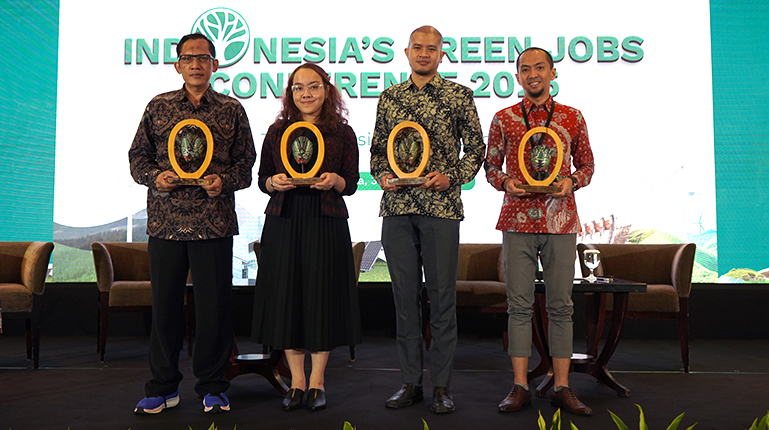
The session was closed with a standing ovation from the participants, indicating the high public interest in the issue of green skills. As a form of appreciation, the committee gave plaques of appreciation to all speakers for their contributions and ideas.
The IGJC 2025 Conference is expected to be an important milestone in spurring collaboration between the government, industry players, academics, and the community in preparing superior human resources to support the energy transition and sustainable development in Indonesia.**
Berita Lainnya
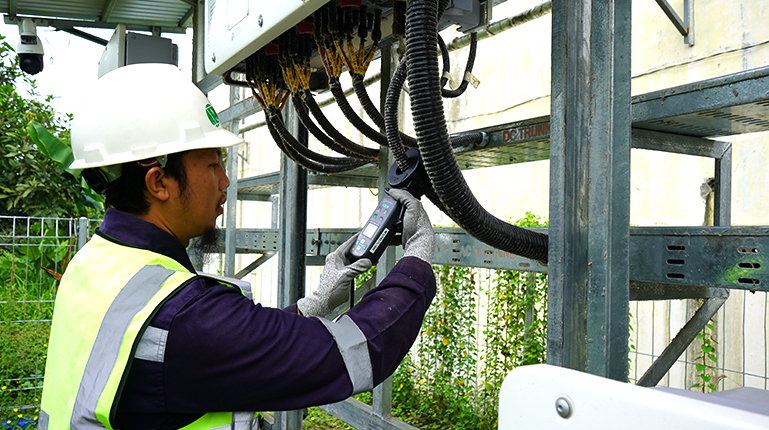
Getting to Know Grounding Measuring Instruments: Functions, Uses, and Types in Solar Power Plant Systems
In the world of electricity, the Grounding system is one of the important elements that is often overlooked, even though its role is very crucial in maintaining the safety and reliability of electrical installations, including in the Solar Power Plant (PLTS) system. One of the tools used to ensure that the grounding system is working properly is the Grounding Measuring Instrument or also known as the Grounding Tester.
What is a Grounding Measuring Instrument?
A grounding tester is a device used to measure ground resistance. This value indicates how well the electric current from the system can be channeled into the ground, especially when there is a disturbance such as leakage current or lightning strikes.
This tool is needed to ensure that the grounding system meets applicable safety standards and is able to protect equipment and personnel from electrical risks.
Why is Grounding Important in the Solar Panel System?
In the PLTS system, both on a household and industrial scale, grounding functions as a path for releasing fault current to the ground. A poor grounding system can cause:
- Damage to the inverter and solar panels,
- Disruption of the overall system operation,
- Risk of electric shock,
- Decreased device life.
Therefore, periodic checks using a grounding measuring instrument are highly recommended, especially to maintain the reliability and safety of the Solar Panel system in the long term.
Types of Grounding Measuring Instruments
There are actually two types of electrical grounding measuring instruments, namely the earth tester and the earth clamp. These two grounding testers have different uses. Here is an explanation of the two:
1. Earth Tester
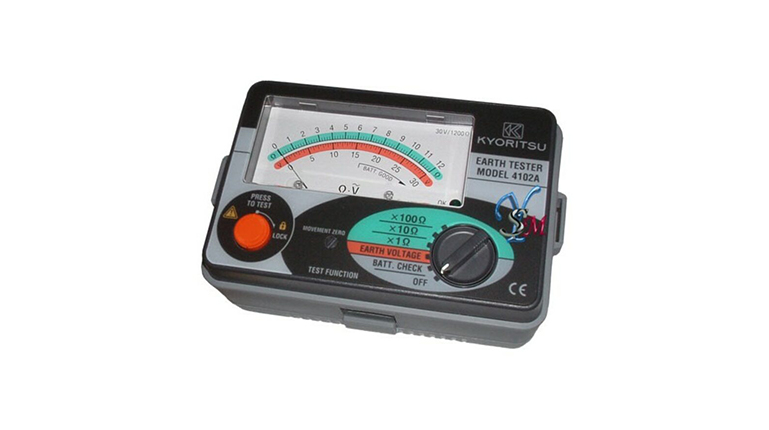
Earth tester is a very useful tool in the process of installing or maintaining a new grounding system. By measuring the ground resistance and identifying areas with high resistance, technicians can take the necessary corrective actions to improve the quality of the grounding and ensure the safety of the system as a whole.
2. Earth Clamp
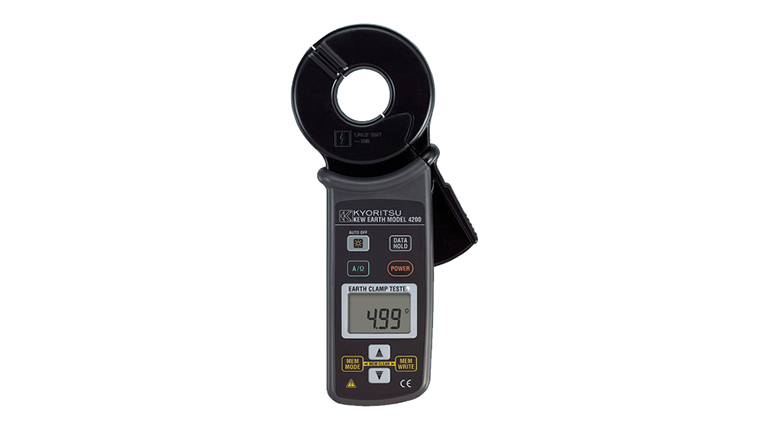
What about the earth clamp? This grounding measuring tool is a device that functions to measure ground resistance by detecting the current flowing through the grounding system. Consisting of a clamp head that can be installed around the ground conductor, such as a grounding cable or grounding rod, this device can measure the current passing through the ground conductor and calculate the grounding resistance automatically based on the detected current.
By using an earth clamp, we can easily and quickly measure ground resistance without having to physically connect or disconnect the ground conductor. This makes the measurement process more efficient and can be done safely and accurately.
PT Surya Energi Indotama's Commitment to Maintaining Grounding Quality
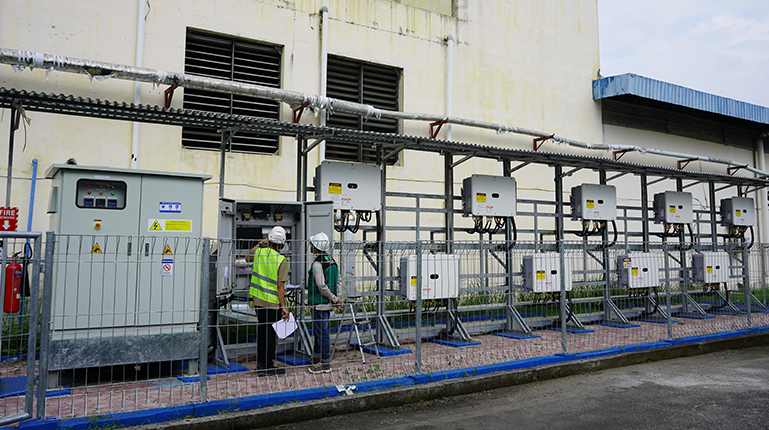
As an experienced renewable energy solution provider, PT Surya Energi Indotama (SEI) places grounding measurement as an important part of our solar PV system installation standards. Through the use of the right grounding tester and periodic testing, we ensure that every system we build:
- Safe for users,
- Resistant to lightning or surges,
- Meets national and international standards,
- Operates efficiently and is durable.
The reliability of a solar energy system starts with technical details such as grounding, and we believe that precision in small aspects can have a big impact on the success of a renewable energy project.
Grounding is not just a technical obligation, but a long-term investment in the safety, reliability, and efficiency of the solar PV system. By choosing the right grounding measuring instrument and implementing periodic testing, we can keep the solar energy system optimal and sustainable.
Trust the safety of your solar PV system to the experts, Together with SEI let's switch to renewable energy!
Berita Lainnya
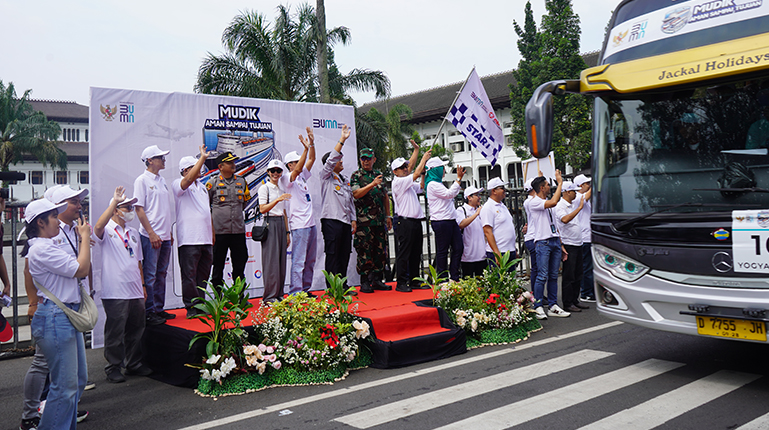
SEI Together with DEFEND ID Sends Thousands of Homecoming Travelers in the “Mudik Aman Sampai BUMN 2025” Program
Bandung (27/03/2025) – SEI together with PT Len Industri (Persero) as the parent company of the Indonesian Defense Industry BUMN Holding, DEFEND ID, sent off 1,250 travelers for free with departure starting at Gedung Sate, Bandung. With the theme "Mudik Aman Sampai Tujuan", this program aims to help people celebrate Eid al-Fitr with their families in their hometowns.
As a form of government support for this program, the release of travelers was carried out by the Head of the UPTD for the Management of Traffic and Road Transportation Infrastructure (PPP LLASDP) of Bandung City, Adwin Singarimbun.
"The existence of this free homecoming program can reduce congestion on the highway and reduce the risk of accidents, in accordance with our commitment to support safe and comfortable transportation. Hopefully, travelers can enjoy their journey safely and calmly," said Adwin in his speech sending off the travelers.
Also present were other regional apparatuses, including the Pamen Expert for Economics, Expert Staff of the Commander of the III/Siliwangi Military Command, Colonel of Infantry Tatang Sukmana, the Head of Economics and Natural Resources of the Regional Development Planning Agency (PSDA Bapedda) of West Java Province, Marini F. Manurung and the Head of General Affairs of the General Bureau of the Regional Secretariat of West Java Province, Agus. The President Director of PT Len Industri (Persero), Joga Dharma Setiawan along with other members of the Board of Directors of Len Incorporated and the President Director of SEI, I Made Sandika Dwiantara and the Director of Marketing and Business Development of SEI, Khanestyo, were also present to see off the homecoming travelers.
In addition to departing from Bandung, there were other homecoming travelers who also departed from Subang, Surabaya and Jakarta. DEFEND ID provides five homecoming routes, including Yogyakarta, Solo, Surabaya, Lampung and Palembang. The public's enthusiasm for this program is very high, as evidenced by the number of registrants reaching 2.115 people.
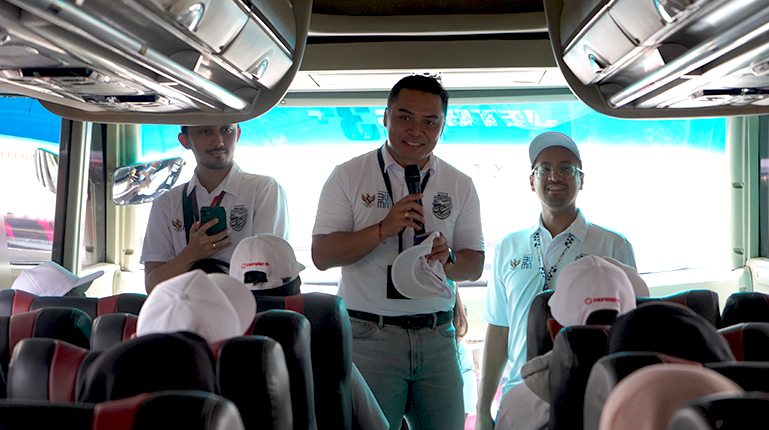
SEI itself contributed 1 bus with a capacity of 50 people bound for Yogyakarta. SEI President Director, I Made Sandika Dwiantara, together with SEI Marketing and Business Development Director, Khanestyo were also present to see off the travelers.
"Be careful on your journey, may you always be healthy and arrive safely at your destination. Greetings to your family at home," said Made.
To ensure the smoothness and safety of the homecoming trip, the bus fleet used has undergone a feasibility check, and the drivers have been provided with special training. In addition to providing free transportation, DEFEND ID also provides various supporting facilities, such as snacks, drinks and medicines. The travelers also get travel insurance during the program.
In addition to SEI, PT Len Industri (Persero) also collaborates with all of its subsidiaries, namely PT Len Railway Systems, PT Eltran Indonesia and PT Len Telekomunikasi Indonesia. Not only that, all other DEFEND ID members, namely PT Dahana, PT Pindad, PT PAL Indonesia and PT Dirgantara Indonesia along with its subsidiary, PT Nusantara Turbin Propulsi, also participated in this program.
This free homecoming program is part of a series of corporate social responsibility activities, as a real form of providing a positive impact on society. SEI together with DEFEND ID are committed to continuing to contribute to the development of society and the nation**
Berita Lainnya
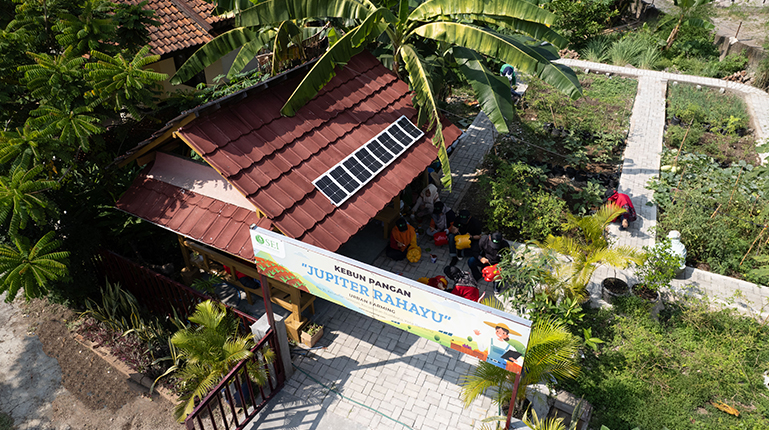
ESG: SEI Real Steps Towards Environmental Sustainability
What is ESG?
Environmental, Social, and Governance (ESG) is a concept that refers to three main factors used to measure a company's sustainability impact. These factors relate to how a company operates in relation to the environment (Environmental), society (Social), and corporate governance (Governance). ESG is becoming increasingly important in the business world because it shows the company's seriousness in paying attention to the impact on the environment and society, as well as its commitment to implementing good governance.
- Environmental: Focuses on the company's impact on nature, such as waste management, energy efficiency, carbon emission reduction, and responsible use of natural resources.
- Social: Relates to corporate responsibility towards social welfare, including relations with employees, contributions to local communities, and concern for human rights.
- Governance: Concerning aspects of transparency, accountability, and good business practices in company management, including in terms of decision-making and integrity.
Benefits of ESG Implementation
The implementation of ESG principles provides many benefits for both companies and the surrounding community and environment, including:
- Sustainability and Positive Impact: Companies that implement ESG tend to have a greater positive impact on the environment and society. This ensures long-term sustainability and supports environmental protection efforts and social welfare improvements.
- Improved Reputation: Companies that are committed to ESG are often viewed more positively by the public, investors, and customers. This improves the company’s image in the public eye, which can increase customer loyalty and attract more environmentally conscious investors.
- Better Risk Management: By considering ESG factors, companies can identify potential risks early, such as environmental or social risks, that could impact long-term performance.
- Access to Financing and Investment: Companies that adhere to ESG principles often have an easier time gaining access to financing or investment from sustainability-focused institutions.
SEI Real Steps Towards Environmental Sustainability
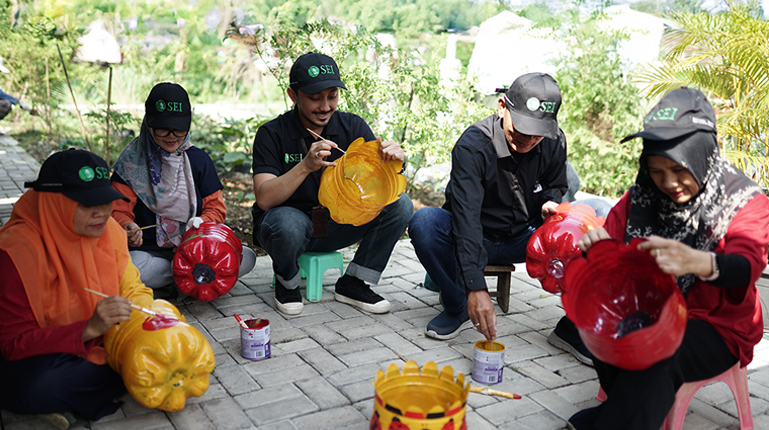
As a company committed to ESG principles, PT Surya Energi Indotama (SEI) not only focuses on financial gain, but also pays great attention to environmental sustainability and social welfare. One real form of SEI commitment to sustainability is through the Corporate Social Responsibility (CSR) program called "Jupiter Rahayu Food Garden". This program not only manages natural potential but also empowers the surrounding community to participate in implementing ESG principles. Among them:
1. Management of Kitchen Waste as Natural Fertilizer (Loseda)
One of the applications of environmental principles carried out is the management of kitchen waste. Kitchen waste which is usually difficult to decompose, is now processed with an innovative method into natural fertilizer, this program is called Lodong Sesa Dapur (Loseda). This process not only reduces the amount of waste but also provides benefits for the soil and plants in the Jupiter Rahayu food garden and in the surrounding community. Thus, SEI indirectly contributes to waste reduction and the implementation of sustainable agriculture.
2. Compost Management to Improve Soil Quality
In addition to managing kitchen waste, the Jupiter Rahayu Food Garden also implements compost bin management to recycle organic waste in the garden. The compost produced is used to improve soil quality in the garden, which in turn increases agricultural yields naturally without relying on synthetic chemicals. This greatly supports the sustainability of environmentally friendly agriculture.
3. Application of Solar Panels for Renewable Energy
As part of its commitment to sustainability, SEI also installed solar panels on the huts in the Jupiter Rahayu food garden. The use of solar panels allows SEI to utilize clean and environmentally friendly renewable energy. In addition to reducing dependence on fossil fuels, this also provides a real example to the surrounding community about the importance of transitioning to more environmentally friendly energy.
4. Revitalization of Non-Production Land to Become Productive
One of the major challenges in land management is how to manage unproductive land so that it can provide benefits. SEI has revitalized non-productive land around the Jupiter Rahayu food garden and transformed it into productive land with various types of food crops. In this way, SEI not only improves the quality of the surrounding environment but also helps improve local food security.
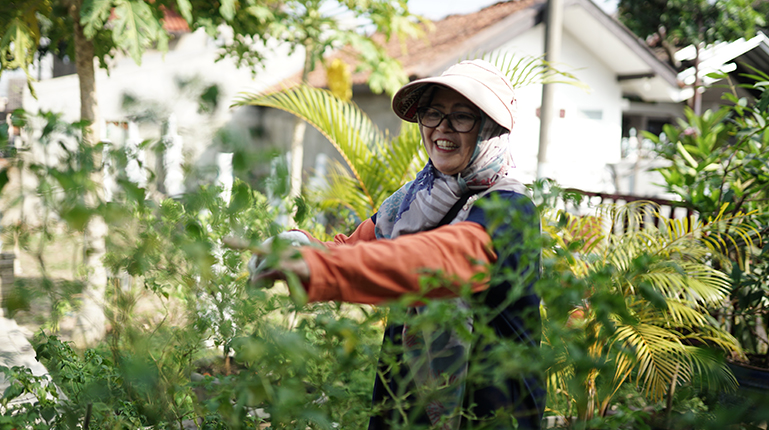
SEI's commitment to ESG principles reflects the company's responsibility to the environment and society. Through CSR programs such as Kebun Pangan Jupiter Rahayu, SEI has demonstrated how ESG principles can be applied in real terms, with a focus on waste management, renewable energy, and improving community welfare. This is an important step in creating a more sustainable future, where companies, communities, and the environment can thrive together.
Together with SEI, let's switch to renewable energy!
Berita Lainnya
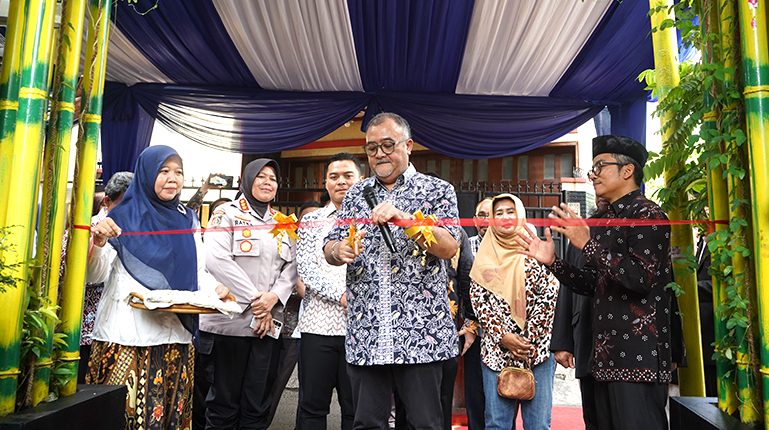
Inauguration of the Planet Crisis Pilot Media: SEI Real Steps in Environmental Education and Resilience
Jakarta (02/03/2025) - SEI together with the Environmental Control Agency inaugurated the Planetary Crisis Prevention Learning Model Media located at Jalan Nusa Indah IV Number 35, RT08/RW4, Malaka Jaya Village, Duren Sawit District, East Jakarta.
The inauguration was attended by the President Director of SEI, I Made Sandika Dwiantara along with a number of other state officials. Along with this, the inauguration was carried out by the Head of the Environmental Control Agency, Hanif Faisol Nurofiq who was represented by the Deputy for Climate Change Control and Carbon Economic Value Management, Ary Sudijanto.
"With the blessings of Allah SWT, I say bismillahirrahmanirrahim, officially the Malaka Jaya Planetary Crisis Prevention Learning Media is inaugurated," he said.
Ary hopes that the inauguration of this learning media can provide widespread benefits and can also be a real step in efforts to save the earth in the future. This is in line with the purpose of creating the media, which is intended to educate the surrounding community about the importance of positive contributions in protecting the environment, especially preventing the planetary crisis.
According to Ary, this project is also a real step in facing the Triple Planetary Crisis: climate change, environmental pollution, and loss of biodiversity. "This initiative shows that with the collaboration of various parties, from the government to the community, we can create concrete solutions to protect the earth," he said.
This innovative initiative presents various sustainable facilities, including nutrient ponds containing cultivated fish, aquaponic plants, biopore holes, infiltration wells, waste processing into compost, and energy-saving lamps.
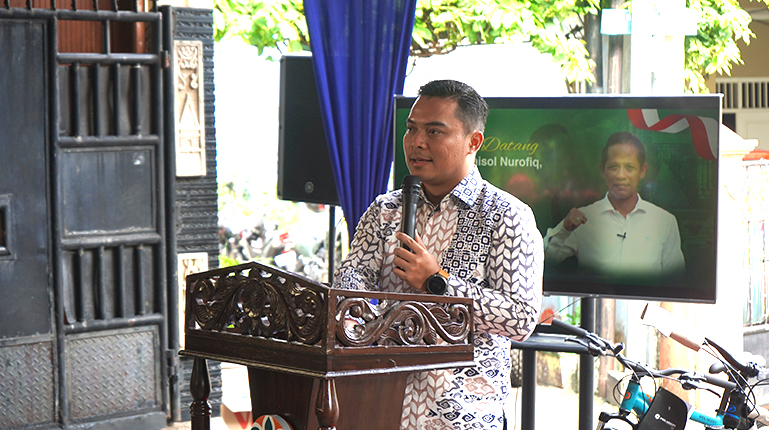
In this learning media, SEI also plays a full role in providing supporting facilities for the learning media activities. SEI President Director, I Made Sandika expressed his appreciation and support.
"Also appreciate the existence of this learning media. In order to provide an example to other communities, especially the neighborhood association area, regarding climate change. In the future, SEI will continue to support this program, starting from the installation to the maintenance of the solar panel system installed in this learning media," he said.
Meanwhile, the main figure behind the initiative to build this pilot learning media, Head of RT08/RW4 Malaka Jaya Taufiq Supriadi, explained how this media was born.
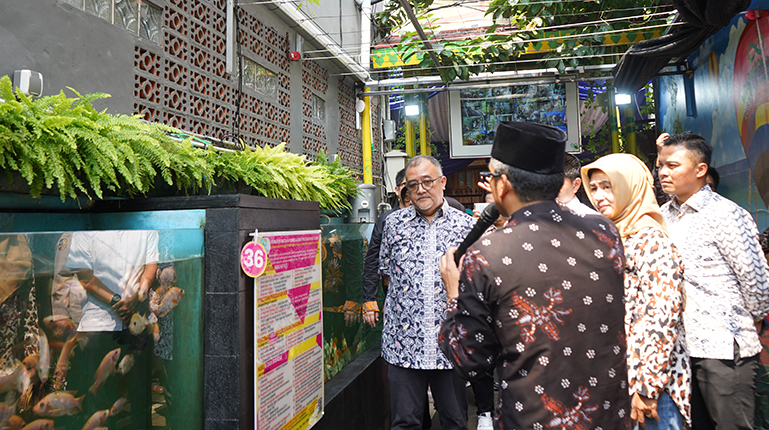
"We thought, we have to create a pilot media to endorse, to teach people to think that in a place full of 'concrete', which used to be (sorry) barren, it can become green," said the Head of RT who also serves as Director of the Asia Pacific Certification Program.
KThe success of this project has received national and international recognition, including an Intellectual Property Rights (HAKI) certificate from the Ministry of Law and Human Rights, a MURI record, and an International Growth Standard award for its contribution to the environment.
It is hoped that this Pilot Media can inspire other communities in realizing a greener and more sustainable environment.
Berita Lainnya
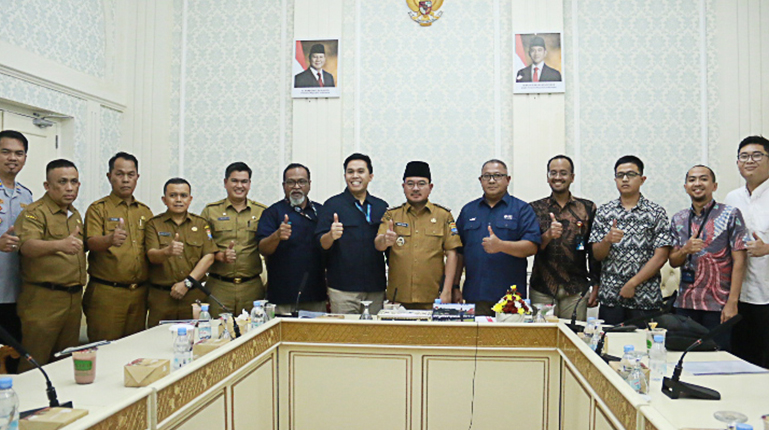
SEI Explores Clean Energy Cooperation with Palembang City Government
Palembang (25/2/2025) - PT Surya Energi Indotama (SEI) visited the Palembang Mayor's Office to explore potential cooperation with the Palembang City Government (Pemkot) in developing clean energy implementation.
The SEI group led by SEI Commissioner, Syahrial, accompanied by the Director of Marketing and Business Development, Khanestyo, Director of Engineering and Operations, Ridwan Kurnia, and staff. They were warmly welcomed by the Deputy Mayor of Palembang, Prima Salam, along with the relevant Heads of Departments (Kadis) and staff.
In the meeting, SEI expressed its commitment to supporting the government's program in the clean energy transition. SEI offers various renewable energy solutions, especially solar energy, which can be implemented in the City of Palembang.
"We see that Palembang has great potential for developing clean energy implementation. We are ready to work with the Palembang City Government to create a more environmentally friendly and sustainable city," said Syahrial.
The Deputy Mayor of Palembang, Prima Salam, welcomed the offer of cooperation from SEI. He said that the Palembang City Government has a strong commitment to developing the implementation of clean energy.
"We are very open to cooperation with parties who have the same vision in developing the implementation of clean energy. We hope that this cooperation can provide great benefits for the people of Palembang," said Prima.
Both parties agreed to discuss further the potential for cooperation that can be carried out. This SEI visit is a positive initial step in efforts to develop clean energy in the city of Palembang. The cooperation between SEI and the Palembang City Government is expected to be an example for other regions in utilizing renewable energy.
Berita Lainnya
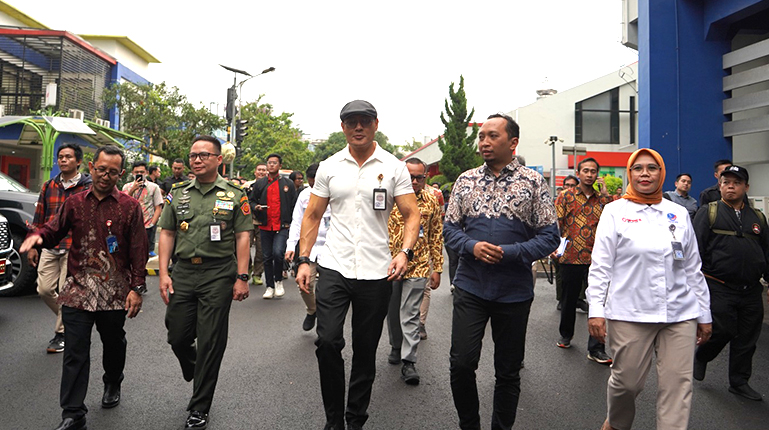
Deddy Corbuzier Visits SEI Solar Module Factory in Defense Industry Exploration DEFEND ID
Bandung (26/2/2025) - Special Staff of the Minister of Defense for Social & Public Communication, Lieutenant Colonel Titular Deddy Corbuzier, visited the solar module manufacturer PT Surya Energi Indotama as part of the Defense Industry Exploration held by DEFEND ID. This visit is part of a series that previously also visited PT Dirgantara Indonesia, PT Pindad and PT Len Industri (Persero). During the visit, Deddy Corbuzier had the opportunity to see firsthand the solar module production process at PT Surya Energi Indotama and seemed very impressed with the results of the work produced. He was accompanied by Brigadier General TNI Frega Ferdinand Wenas Inkiriwang, Acting Director of Engineering and Operations, Ridwan Kurnia and SCM Staff, Choirul Rizal.
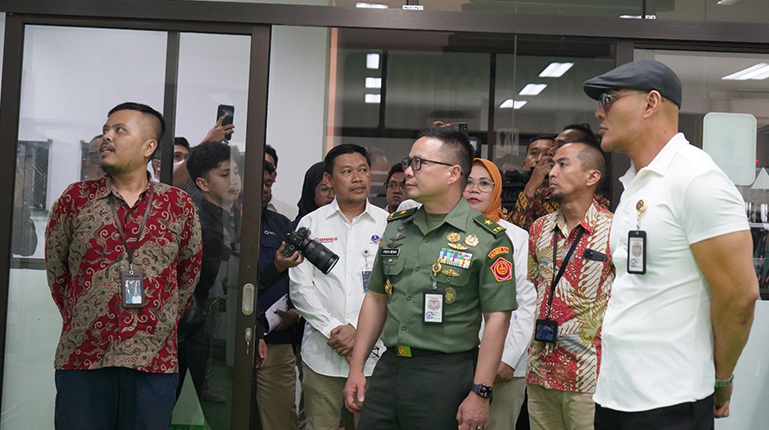
There was a discussion with SEI management regarding the potential for developing solar energy to support national defense. "Solar energy has enormous potential to support national defense. In addition to being environmentally friendly, solar energy can also be an independent and renewable energy source." Choirul Rizal said. Deddy Corbuzier also appreciated DEFEND ID's steps in holding this Defense Industry Exploration. According to him, this activity can provide a better understanding to the public regarding the Indonesian defense industry. "I hope that activities like this can continue to be carried out to increase public awareness regarding the importance of the defense industry for our country," he said. Acting Director of Engineering and Operations of PT Surya Energi Indotama, Ridwan Kurnia, welcomed Deddy Corbuzier's visit. He hopes that this visit can strengthen cooperation between the Ministry of Defense and the Defense industry, especially in the field of Solar Energy. Deddy Corbuzier's visit to PT Surya Energi Indotama shows a strong commitment to strengthening the independence of the Indonesian defense industry through renewable energy innovation. This collaboration not only supports energy sustainability, but also opens up opportunities for Indonesia to be more independent and resilient in facing global challenges.
Berita Lainnya
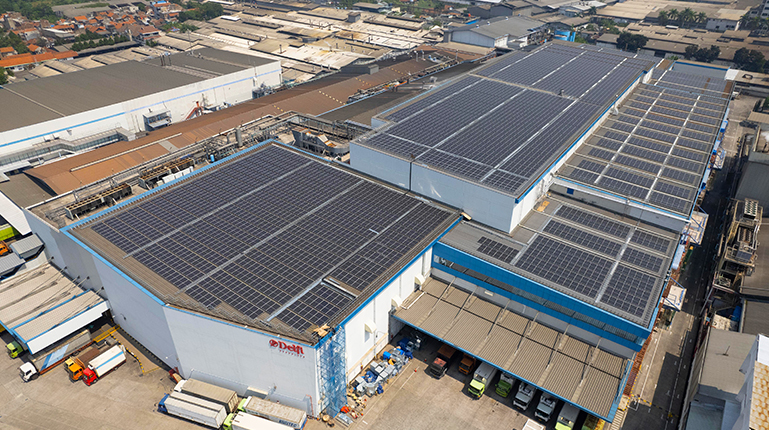
Not Just Chocolate Production, Ceres is Now Committed to Reducing Carbon Emissions for the Environment
In an effort to support the clean energy transition and improve operational efficiency, PT Perusahaan Industri Ceres (PT Ceres) has adopted a 2.1 MWp on-grid rooftop Solar Power Plant (PLTS) system.
The company engaged in the production of chocolate-based foods and installed PLTS on top of company buildings. PT Ceres is also known as one of the leading companies in the FMCG (Fast-Moving Consumer Goods) industry in Indonesia. This step confirms that the use of renewable energy in Indonesia is no longer just an alternative, but an urgent need.
The PLTS installation project in the PT Ceres environment is the result of close collaboration between PT Ceres as the building owner and energy user, Total Energies as the Developer, and SEI as the EPC. This PLTS has a capacity of 2.1 MWp, with 17 inverters with a capacity of 100 kW each, so that the total AC capacity reaches 1.7 MW and the DC module capacity reaches 2.1 MW. This system is capable of supplying enough electricity to meet most of the energy needs in the PT Ceres chocolate production building.
In addition, the use of a sophisticated monitoring system allows for real-time monitoring of the PLTS performance. This PLTS is also equipped with an Uninterruptible Power Supply (UPS) which can provide backup power for up to two hours during a power outage, ensuring that system monitoring continues.
The installation of PLTS at PT Ceres has not only succeeded in reducing the cost of electricity needs but also contributed to environmental sustainability in the future. This strategic collaboration is a real manifestation of a shared commitment to switching to clean and efficient energy.
In the implementation process, challenges are certainly unavoidable, especially in maintaining installation quality standards that are by expectations. Differences in expectations regarding the quality of subcontractor work are one of the obstacles faced. But of course, all can be overcome as stated by the SEI Project Engineer in this project, Rurizwan Syahru Wibisana.
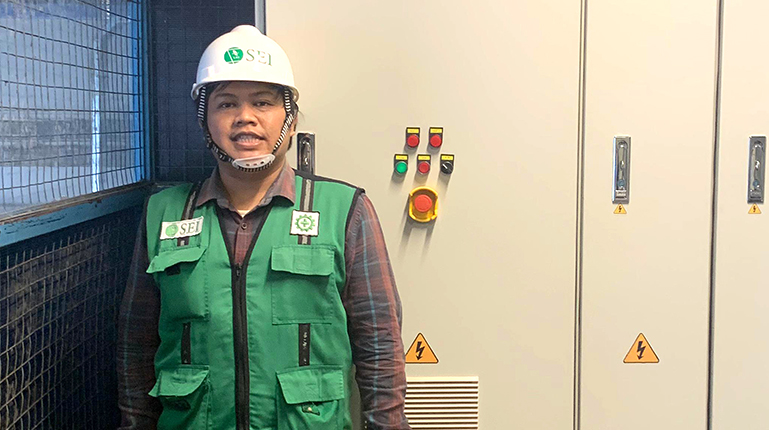
"To ensure compliance with the specifications that have been set, clear communication, strict supervision, and routine evaluation are required. Hopefully, Ceres can immediately feel more optimal efficiency from the use of PLTS in achieving their targets," said Rurizwan who also hopes that the use of the PLTS system will be more optimal at PT Ceres in the future.
Despite facing various challenges in the PLTS installation process, Rurizwan and his colleagues from SEI completed the installation according to the established quality standards. The success of this project is expected to be an example of encouraging the growth of the solar energy industry in Indonesia. By continuing to innovate and improve product quality, SEI continues to strive to contribute to achieving the national clean energy target.
Berita Lainnya
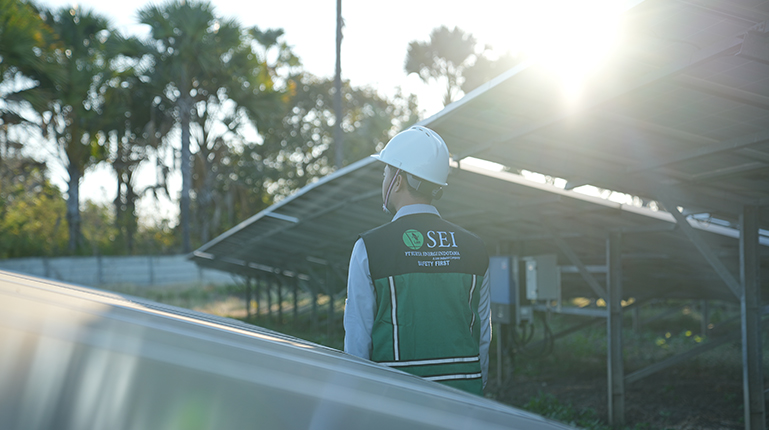
Here’s How Solar Power Plants Can Change Our Future!
Solar Power Plants (PLTS) are an increasingly popular solution to the challenges of global climate change. Given the increasing need for energy, humans tend to rely on fossil fuel power plants such as coal, oil, and natural gas. However, these energy sources are limited and very harmful to the environment, especially in producing greenhouse gas emissions that trigger global warming. This is where PLTS plays an important role in reducing the carbon footprint, which is the total carbon emissions produced by human activities.
What is a Carbon Footprint?
A carbon footprint refers to the amount of carbon dioxide (CO2) and other greenhouse gas emissions produced by human activities, both in the production of goods, energy use, and transportation activities. These emissions, especially those produced from the combustion of fossil fuels, increase the concentration of greenhouse gases in the atmosphere, which worsens global warming.
How PLTS Works
PLTS is a system that utilizes solar energy to generate electricity. This system consists of solar panels (photovoltaic) that convert sunlight into electrical energy through a process called the photovoltaic effect. The electrical energy produced can then be used directly or stored in batteries for later use. Solar power plants do not emit emissions during the energy production process, making them one of the most environmentally friendly renewable energy sources.
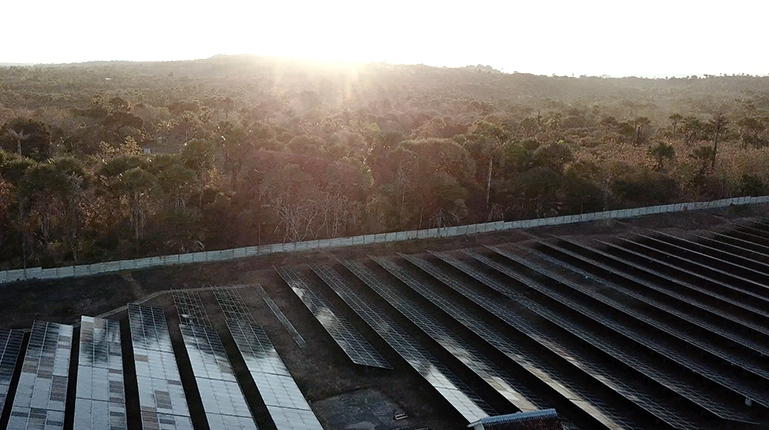
How Does Solar Power Plant Reduce Carbon Footprint?
- Reducing Dependence on Fossil Fuels
One of the main ways that solar power plants reduce carbon footprints is by replacing fossil fuel power plants. Burning fossil fuels such as coal, oil, and natural gas to generate electricity produces very high carbon emissions. In contrast, solar power plants generate electricity without emitting direct emissions, because solar panels only utilize solar energy that does not pollute the air.
- Environmentally Friendly Renewable Energy
Solar energy sources are a form of renewable energy, meaning that they can be obtained continuously without reducing natural resources. Unlike coal or oil, which require intensive mining and processing and produce emissions during the process, solar energy does not require destructive processes and does not produce carbon emissions during use.
- Reducing Energy Waste
In addition to reducing dependence on fossil fuels, solar power plants can also help reduce energy waste. In many places, energy generated from fossil fuels is often wasted or lost due to inefficient distribution. By using solar power plants, electricity can be produced and used closer to where it is consumed, reducing the need for large distribution networks and reducing energy waste.
- Increasing Efficient Energy Use
Solar energy is not only environmentally friendly, but it can also be used more efficiently in certain applications. For example, homes or commercial buildings can install solar power systems on their roofs, allowing them to harness the sun’s energy directly and reduce their dependence on potentially fossil fuel-based power sources from the electricity grid.
- Driving Innovation in Energy Storage
Energy storage technologies, such as batteries, are increasingly being developed thanks to the use of solar power plants. By storing solar energy generated during the day, people can use it at night or during cloudy weather. The development of efficient energy storage technologies can reduce dependence on fossil fuel-powered power plants that are usually needed to cover fluctuations in energy supply.
- Deployment of Solar Power Plants in Locations Far from the Electricity Grid
One of the advantages of solar power plants is their ability to be installed in various places, even in areas that are not covered by the electricity grid. Thus, solar power plants can provide access to electricity without the need to build complex and expensive infrastructure. This not only reduces the carbon footprint but also improves the quality of life of people in remote areas.
Impact of Using Solar Power Plants in Reducing Carbon Footprint
The use of solar power plants on a large scale can have a significant impact on reducing the carbon footprint. According to various studies, if more countries and companies switch to solar energy, global carbon emissions can be drastically reduced. Several countries that utilize renewable energy massively, such as Germany and China, have shown a significant decrease in carbon emissions since adopting solar power plant technology.
With every kilowatt of electricity generated from renewable energy sources, especially solar, we can reduce CO2 emissions that are usually associated with the use of fossil fuels. This directly helps achieve the emission reduction targets set in various international climate agreements, such as the Paris Agreement.
Challenges and Future Prospects
Although solar power plants have great potential in reducing carbon footprints, several challenges need to be overcome. Some of these include the relatively high initial installation costs and issues related to energy storage. However, with advances in technology and falling prices of solar panels, these costs are becoming more affordable. In addition, innovations in energy storage are also making it easier to adopt solar power plants in various sectors.
In the future, it is expected that more governments and companies will implement policies that support the transition to renewable energy, including solar power plants. The public is also increasingly aware of the importance of switching to environmentally friendly energy sources for the earth's sustainability.
Solar power plants are one of the most effective ways to reduce carbon footprints and the negative impacts of climate change. By replacing fossil fuel power plants, using renewable energy, and increasing energy efficiency, solar power plants provide a sustainable solution for producing clean energy. By continuing to develop this technology and expanding its adoption, we can significantly reduce carbon emissions and create a greener and healthier future for future generations. Together with SEI, let's move towards renewable energy!
